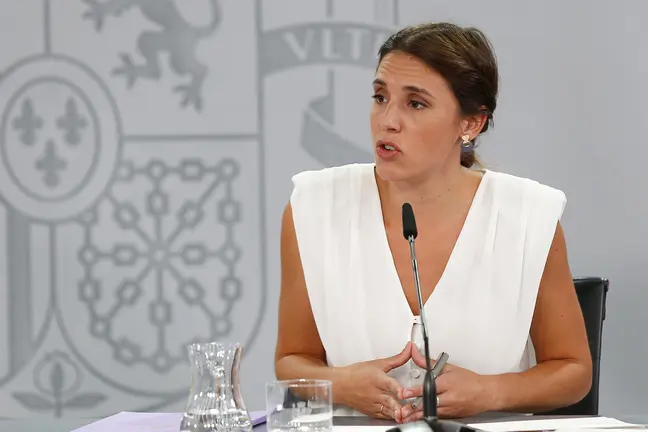The plenary session of the Lower House of Parliament has rejected all the amendments to the Bill for the General State Budget for 2023, which will now continue with its parliamentary procedure.
The referral proposals were rejected by 186 votes, with 159 votes against and three abstentions. Thus, the public accounts pass their first test in the Lower House.
The Minister for Treasury and Public Function, María Jesús Montero, thanked the political groups that voted against the public accounts being returned. In addition, the Treasury Minister has pledged to continue negotiating and engaging in dialogue over the coming weeks to approve the budget, incorporating the improvements that may be agreed during the process and that will benefit the majority of the country's citizens.
During the debate that took place on Wednesday and Thursday, Minister Montero defended that the 2023 Budget is essential to send a message of economic stability in a context of uncertainty due to the Russian invasion of Ukraine.
She outlined public accounts that prioritise social justice, by strengthening the Welfare State, which will allow six out of every ten euros to be allocated to social spending, and economic efficiency, which will drive inclusive growth, the creation of quality employment and the transformation of the production model with the help of European funds.
A budget "for the social majority"
During her speeches, the Treasury Minister stressed that the 2023 Budget includes measures that benefit the middle and working classes, protect vulnerable groups and help the productive fabric. At the same time, the accounts maintain the commitment to fiscal consolidation by reducing the deficit and public debt, which will continue on a downwards path.
Thus, the public accounts include the highest social spending in history with 274.445 billion euros, including European funds. If EU aid is excluded, it stands at 266.719 billion euros, which is 35.4% more than the 2018 Budget, the last of Mariano Rajoy's (PP) government.
Among the items that stand out most are pensions with an allocation of 190.687 billion euros, an increase of 11.4%. An item that includes the revaluation in line with CPI, around 8.5%, which guarantees the purchasing power of more than 10 million pensioners and which, as Minister Montero reminded us, means complying with the law and the recommendations of the Toledo Pact.
In addition, for the first time in 13 years, 2.957 billion euros was added to the Pension Reserve Fund, demonstrating the sustainability of the system.
Youth, elderly
The minister also stressed that the Budget makes the protection of the elderly compatible with a clear commitment to young people, to whom policies worth 12.741 billion euros are allocated, 13.2% more than in 2022.
Among the measures aimed at this group are the 250 euro youth rental voucher and the 400 euro cultural voucher for those who turn 18 in 2023, which will support a fundamental industry for the country such as culture, which also sees its allocation increased by 13.5%.
With the aim of strengthening public policies aimed at the country's social majority, the 2023 Budget also includes the largest allocations in history for scholarships and study grants, health, dependency and the fight against sex-based violence.
Likewise, in order to mitigate the impact of the high inflation caused by the Russian invasion of Ukraine, the public accounts include various measures such as free travel on Cercanías, Rodalies and Media Distancia trains and greater resources for the social thermal bonus.












